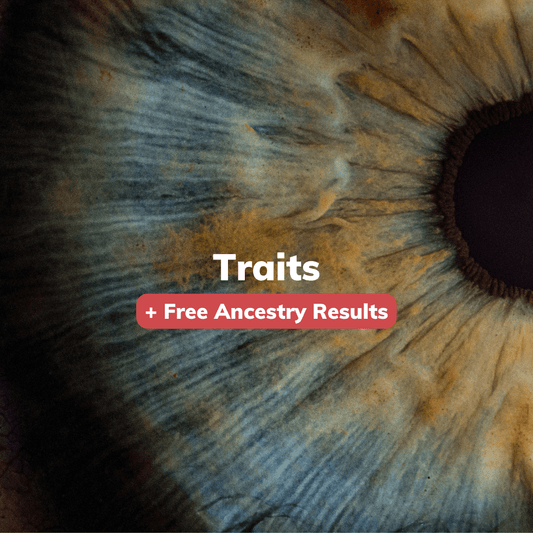
Genetic determinants of muscle performance
BioCertica Content TeamWritten by: Jonine Moller, M.Sc. in Sports Science
Why are some people naturally stronger and faster, while others can effortlessly continue running for who knows how long? Short answer - your genetic make-up. Genes do have a significant impact on your potential muscle performance.
Amongst many, there are two primary genes that determine where your athletic potential lies. Of course, sports performance is dependent on more than just genes. Many factors influence each other. Personality and numerous environmental factors come into play.
There are also more sporting codes than the average Joe has even heard about. Each sport comes with its own set of skills and demands. In other words, determining what is needed to excel is no simple task.
So yes, sports performance is multifactorial and depends on different skills. Most sports, however, do rely on some base component of physical fitness - whether it be strength, speed, power, or endurance. The potential of these components is what is significantly genetically determined.
The athletes that excel in activities that require strength, speed, or power are seldomly the same as those that require aerobic endurance.
One of the explanations for this is muscle fiber type distribution. Humans have three types of muscle fibers: type 1, type 2, and another type between the two. How many we have of each is not set. Each person has a different ratio. This ratio is a large determinant of our natural inclination towards certain types of activities.
The primary energy sources and energy production pathways of the muscle fiber types differ. Thus, the fibers used most for different types of exercise also differ. Specific types of exercise will target different muscle fibers.
Type 2 muscle fibers are the non-oxygen-dependent fibers. They are predominant in power athletes since these are the fibers used for quick and forceful muscle contractions. Type 1 muscle fibers have a higher capacity for aerobic energy production. They have more potential to improve their endurance capabilities.
The primary gene that influences the potential for strength and speed is the ACTN3 gene. 𝛼-actinin-3 is a skeletal muscle protein in type 2 fibers. A deficiency of this protein impairs the muscle’s ability to produce power. 𝛼-actinin-3 is deficient in people who have two recessive X alleles of the ACTN3 gene [1, 2].
Multiple studies have shown that elite athletes in sports that require speed and strength do not include people that have the X/X ACTN3 genotype [2]. Simply put, if 𝛼-actinin-3 is a protein specific to type 2 muscle fibers, the potential of these fibers to adapt with speed or strength training should be higher.
Having a 𝛼-actinin-3 deficiency is not necessarily bad news, though. This holds potential benefits for enhanced endurance ability. Especially if you also have the ACE insertion gene variant. ACE gene variants have been found to influence athletic endurance performance [1].
The ACE (angiotensin-converting enzyme) is essential for the cardiovascular functioning of muscles. It also plays a vital role in regulating muscle metabolic processes. People with higher ACE activity can have higher endurance type athletic ability [1, 3].
However, new research has shown that the ACE insertion gene variant may enhance athletic potential and performance status overall [3]. This is good news for athletes that compete in sports such as soccer which require a degree of strength and endurance.
Talent identification, in essence, aims to pick out genetically gifted youngsters so they can start with specific training programs. Early steering of environmental factors (ideal training and diet, etc.) should add what is needed to the genetic factors that are already in place.
You can easily find out what your genetic athletic potential is. Do our fitness genetic test to find out whether you are naturally more inclined towards power or endurance.
References:
[1] Mägi, A., Unt, E., Prans, E., Raus, L., Eha, J., Veraksitš, A., Kingo, K., & Kõks, S. (2016). The association analysis between ACE and ACTN3 genes polymorphisms and endurance capacity in young cross-country skiers: Longitudinal study. Journal of Sports Science and Medicine, 15(2), 287–294.
[2] Roth, S. M., Walsh, S., Liu, D., Metter, E. J., Ferrucci, L., & Hurley, B. F. (2008). The ACTN3 R577X nonsense allele is under-represented in elite-level strength athletes. European Journal of Human Genetics, 16(3), 391–394. https://doi.org/10.1038/sj.ejhg.5201964
[3] Appel, M., Zentgraf, K., Krüger, K., & Alack, K. (2021). Effects of Genetic Variation on Endurance Performance, Muscle Strength, and Injury Susceptibility in Sports: A Systematic Review. Frontiers in Physiology, 12(July), 1–18. https://doi.org/10.3389/fphys.2021.694411


